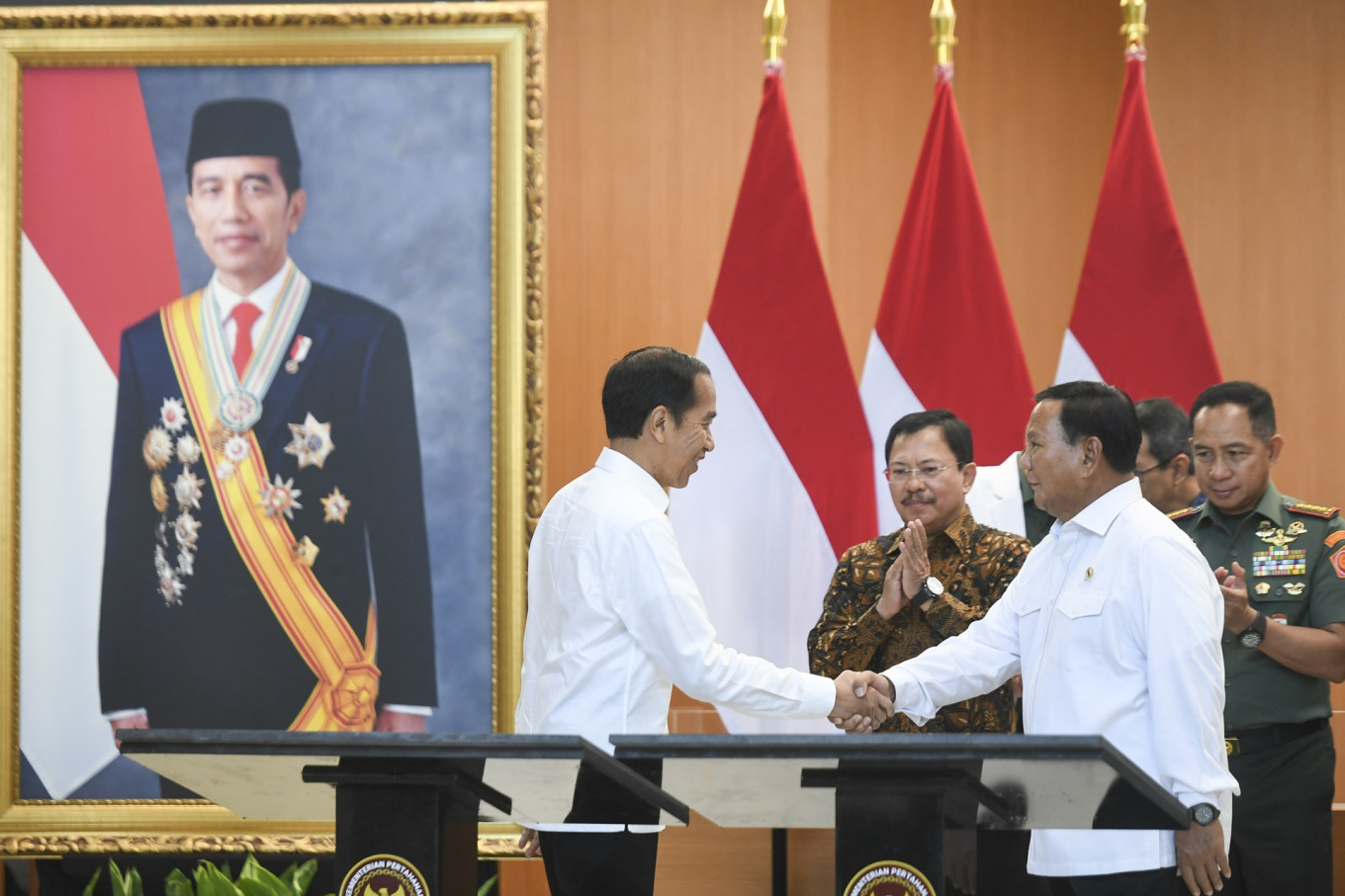Prabowo, drawing on his experience in the US military, might pursue a cautious strategy in managing relations between China and the USA.
Joko Widodo, fondly known as Jokowi, has played a significant role in the emergence of Prabowo as a prominent figure in Indonesian politics. The correlation between Jokowi’s tenure and the rise of Prabowo is not merely coincidental but reflects a gradual and transactional interplay of Indonesia’s political dynamics.
Jokowi’s remarkable ascent to the presidency, despite having only seven years of experience as the Mayor of Surakarta (Solo), demonstrates his exceptional leadership and merit-based approach. His journey from a local leader to the highest office in Indonesia, without a military or political elite background, highlights his unique path to power.
During the first year of his presidency, he focused on much-needed infrastructure projects. He endorsed tough policy decisions, such as removing fuel subsidies, demonstrating his commitment to responsible governance and economic reform, even in the face of short-term challenges and public opposition. His administration sought to mitigate the impact by implementing measures to support vulnerable groups and cushion the effects of rising fuel prices. Over time, the move was recognized as necessary to address structural imbalances in the economy and promote more sustainable development. Therefore, he opened the door to China to pour in the investment.
Jokowi’s handling of the domestic challenges has not been so smooth, but the introduction of welfare programs for the grassroots, such as health insurance, family welfare, and increased fund allocation for education, were some of the critical steps which consolidated his base as a veteran politician.
During his first term, 2014-2019, Indonesia faced an unprecedented situation questioning Indonesia’s professed diversity and tolerance. A vast number of Muslims, constituting the most significant religious gathering in the history of Indonesia, congregated in Jakarta’s central park, Medan Merdeka, demanding action against Jakarta’s Christian Chinese governor, Basuki Ahok Tjahaja Purnama, alleging blasphemy against Islam.
There was a direct challenge by the hardline Islamists among the many coalition of Islamist groups forming the National Movement of MUI, Fatwa Guard (GNPF-MUI). Analysts see the rally as Muslim frustration over increasing Chinese investment disguised as infrastructure development in Indonesia. In response to the strong undercurrent against Ahok, Jokowi acquiesced, leading to Ahok’s sentencing two years after a trial that underscored the growing influence of hardliners in the country.
Despite facing challenges, Jokowi persevered and, with support from civil society, took steps to confront fringe hardliner elements, ultimately strengthening his leadership and resilience. Throughout his tenure, he managed to maintain economic growth at around 5 per cent, demonstrating his ability to navigate challenges while sustaining Indonesia’s economic progress.
One of Jokowi’s notable projects that has garnered global attention is the proposal to relocate the capital from Jakarta to Nusantara in Kalimantan. This ambitious endeavour has been made possible partly by securing funds from China and leveraging Indonesia’s natural resources, such as nickel and other minerals, as collateral. Jokowi’s frequent visits to China underscore Indonesia’s urgent need for funding to support infrastructural development and economic growth. As of 2022, Indonesia reportedly owed $20.2 billion to China, reflecting the significant financial involvement of Chinese investors in the country’s development projects.
RISE OF PRABOWO
Prabowo Subianto, a former Military General who lost in both the 2014 and 2019 presidential elections against Jokowi, emerged as a disruptive force for Jokowi during the second term as his supporters were not ready to accept the defeat and carried out a violent protest resulting the deaths of 10 people in riots. Jokowi struck a deal with Prabowo and offered him the post of defence minister. His landslide margin in the 14th Feb General Elections has re-established Indonesia’s tradition of transactional politics as his running mate for the Vice President is no other than the son of Jokowi’s 36-year-old son, Gibran Rakabuming Raka.
Mere days after the election, Chinese Ambassador Lu Gang hastened to congratulate Prabowo at his residence in South Jakarta, even capturing a photo opportunity with his beloved pet cat, Bobby, underscoring China’s desperate desire to further deepen its ties with Indonesia.
Prabowo, drawing on his experience in the US military, might pursue a cautious strategy in managing relations between China and the USA, especially in the early stages of his administration. Nevertheless, diverging from Jokowi’s sinocentric stance could present difficulties despite Prabowo’s assurances of continuity with Jokowi’s policies. Additionally, the upcoming vice presidency of Prabowo’s son, Gibran, signals a continued influence of Jokowi’s legacy within the government, which could further shape Prabowo’s decision-making process.
IMPLICATIONS FOR INDIA
Indonesia, a G-20 member, has emerged as India’s largest trade partner in ASEAN, with bilateral trade reaching $38.85 billion in fiscal year 2022-23, marking a 48% increase. This growth, comprising exports worth
Gautam Kumar Jha, Assistant Professor, Centre for Chinese & Southeast Asian Studies, JNU
Email: gauamkjha@gmail.com

